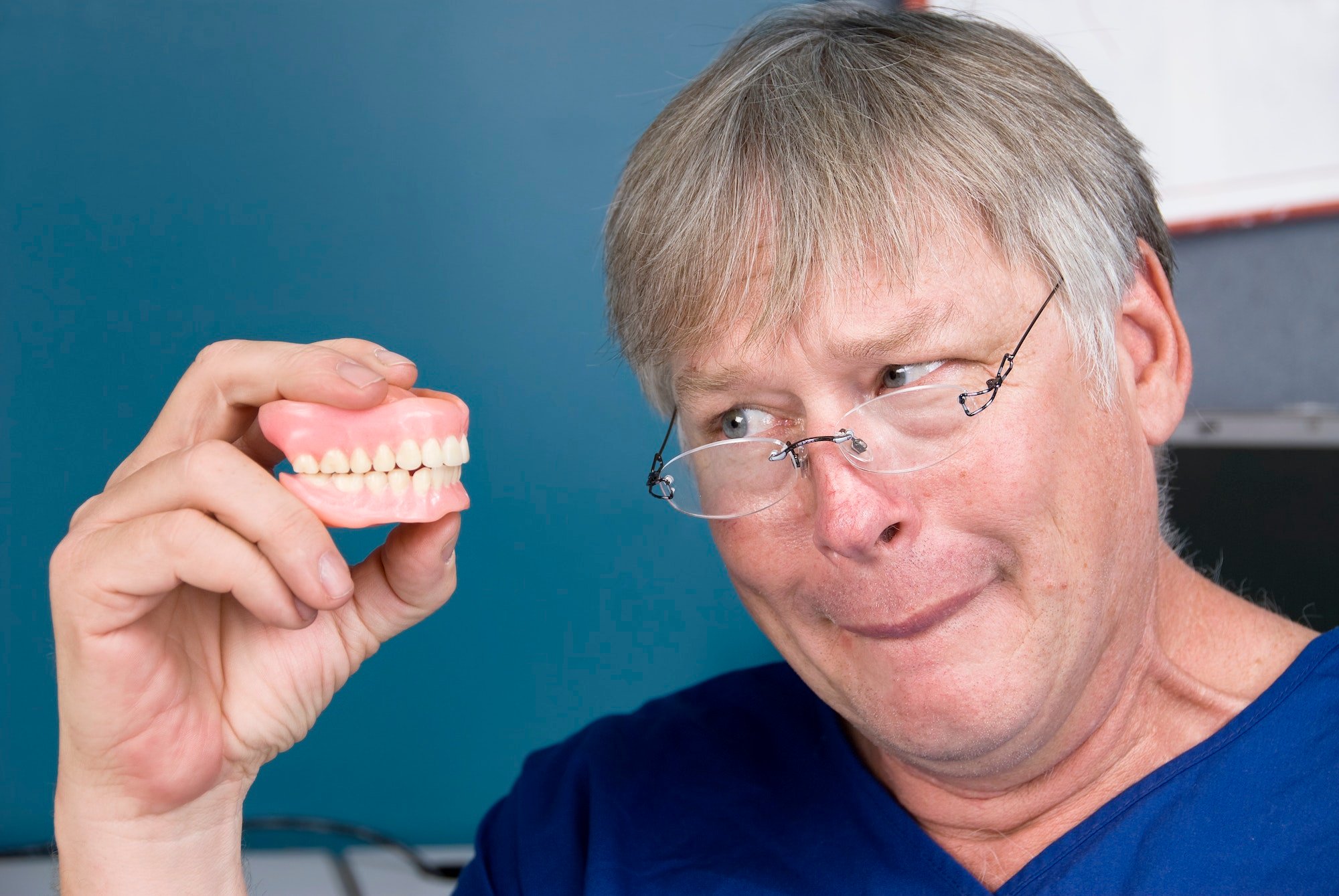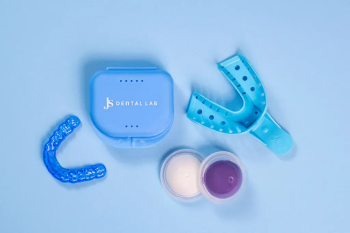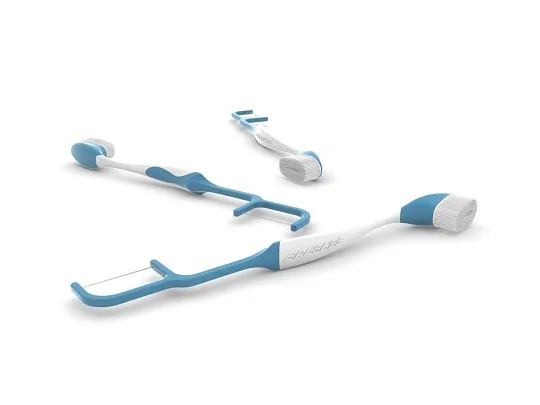Intro
Dentures can be an important tool for restoring the function and appearance of your smile if you are missing some or all of your natural teeth. But properly caring for your dentures will be essential in ensuring that they continue to fit well and work effectively. This article will cover the steps you can take to care for your dentures properly. From maintaining good oral hygiene to visiting your dentist regularly, we will provide you with the information you need to keep your dentures in the best possible condition. By following these tips, you can help ensure that your dentures continue to support your oral health and well-being.
The Importance of Maintaining Good Oral Hygiene
Maintaining good oral hygiene is essential not only for the health of your dentures but also for your overall oral health. Here are some tips for maintaining good oral hygiene when you wear dentures:
- Brush your dentures daily: Use a soft-bristled toothbrush and a denture-specific cleaner or mild dish soap to brush your dentures daily. Be sure to brush the fronts, backs, and tops of your dentures as well as the gums. This helps remove plaque and food particles and prevent bacteria buildup.
- Rinse your dentures after meals: After eating, rinse your dentures thoroughly with water to remove any food particles. This can help curb the buildup of bacteria and keep your dentures fresh.
- Clean your mouth: Use a soft-bristled toothbrush or a tongue scraper to gently clean your mouth, including your gums, tongue, and palate. This helps to remove any plaque or food particles and prevents bad breath.
Handling and Storing Dentures
Proper handling and storage of your dentures are important to maintain their health and longevity. Here are some tips for handling and storing your dentures:
- Handle your dentures with care: Avoid applying too much pressure or force to prevent damage to your dentures.
- Hold your dentures over a sink or a soft towel: When handling your dentures, be sure to hold them over a sink or a soft towel in case you drop them.
Soaking your Dentures
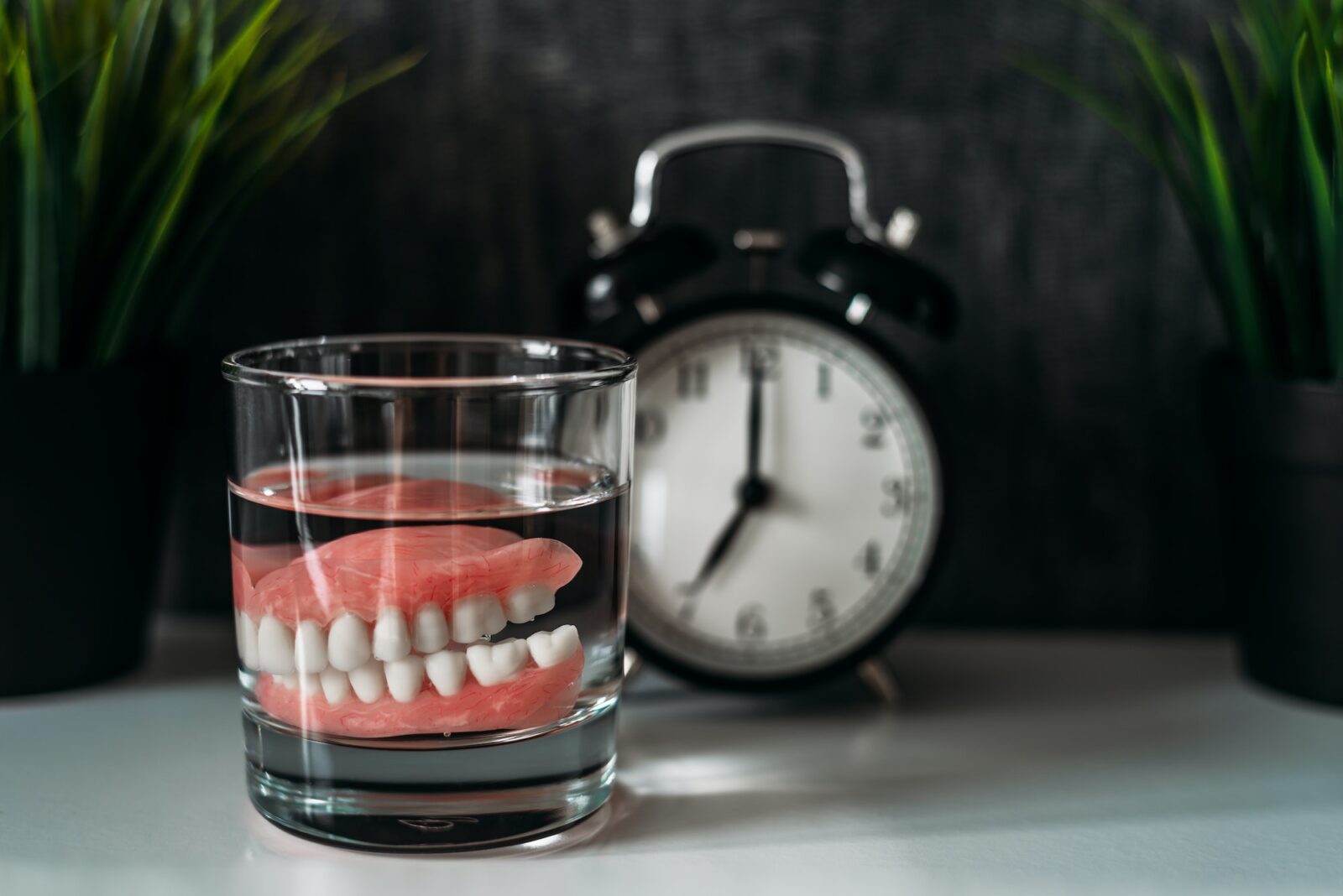
Soaking your dentures when not in use can help keep them clean and prevent them from drying out. Here are some tips for soaking your dentures:
- Use a denture-specific cleaner: Denture-specific cleaners are designed to clean and disinfect your dentures without damaging them. Follow the instructions on the package for the recommended amount of cleaner to use.
- Use a mixture of water and mild dish soap: If you do not have a denture-specific cleaner, you can soak your dentures in a mixture of water and mild dish soap. Avoid using hot water or abrasive cleaners, as these can damage your dentures.
- Soak your dentures overnight: Soak your dentures overnight to give them plenty of time to clean and disinfect.
- Rinse your dentures before wearing them: Before wearing your dentures, rinse them thoroughly with water to remove any remaining cleaner or soap.
Visiting your Dentist Regularly
Visiting your dentist regularly is an important part of maintaining the health and comfort of your dentures. Here are some reasons why it is important to visit your dentist regularly:
- Check for fit and adjustment: Your dentures may need to be adjusted over time as your mouth changes. Visiting your dentist regularly can help ensure that your dentures continue to fit well and work effectively.
- Check for damage: Your dentist can check your dentures for damage, such as cracks or loose teeth, and repair them if necessary.
- Check for oral health issues: Your dentist can check your mouth for any oral health issues, such as gum disease or oral cancer, and provide treatment if necessary.
- Clean and polish your dentures: Your dentist can clean and polish your dentures to help remove any plaque or stains and keep them looking their best.
Removing and Inserting your Dentures
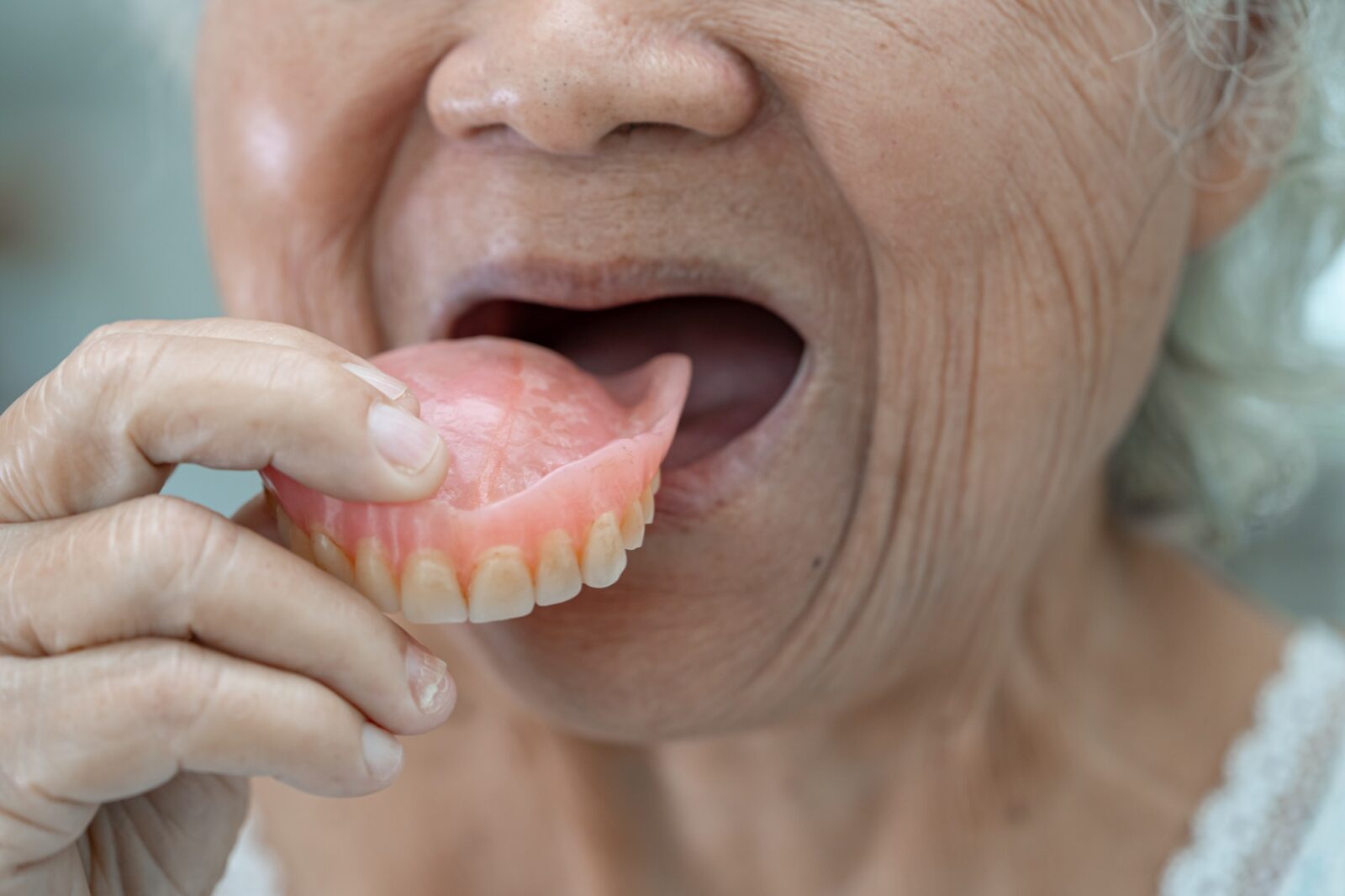
Learning how to remove and insert your dentures properly can help ensure they remain comfortable and fit well. Here are some tips for removing and inserting your dentures:
- Removing your dentures: To remove your dentures, gently grasp them by the fronts and pull straight out. Avoid twisting your dentures, as this can cause them to break.
- Inserting your dentures: To insert your dentures, place them in your mouth and gently press down on the fronts and backs of the dentures until they are in place. If your dentures feel loose or uncomfortable, do not try to adjust them yourself. Instead, contact your dentist for an adjustment.
Eating with Dentures
Eating with dentures can take some time to get used to, but with practice, it can become a natural part of your daily routine. Here are some tips for eating with dentures:
- Start with softer foods: When you first start wearing dentures, it may be easier to eat softer foods. Gradually work up to harder foods as you become more comfortable with your dentures.
- Cut your food into small pieces: Cutting your food into small pieces can make it easier to chew with your dentures.
- Avoid sticky or hard-to-chew foods: Sticky or hard-to-chew foods can be difficult to eat with dentures. Avoid these foods or cut them into small pieces before eating them.
Denture Adhesives
Denture adhesives can help hold your dentures in place and provide additional comfort and stability when eating or speaking. Here are some tips for using denture adhesives:
- Apply the adhesive to your dentures: Apply the adhesive to your dentures according to the instructions on the package. Be sure to cover the entire surface of your dentures for maximum hold.
- Place your dentures in your mouth: Place your dentures in your mouth and gently press down on the fronts and backs of the dentures until they are in place.
- Rinse your mouth after using adhesive: After using adhesive, rinse your mouth thoroughly with water to remove any excess adhesive.
- Clean your dentures: Be sure to remove any excess adhesive before soaking or storing your dentures.
Common Problems with Dentures
Even with proper care, it is not uncommon for dentures to develop problems from time to time. Here are some common problems with dentures and how to address them:
- Loose dentures: If your dentures feel loose or uncomfortable, contact your dentist for an adjustment.
- Cracks or chips: If your dentures have cracks or chips, do not try to repair them yourself. Contact your dentist for repair or replacement.
- Stained or yellowed dentures: If your dentures are stained or yellowed, you can try soaking them in a denture-specific cleaner or a mixture of water and mild dish soap overnight. Avoid using abrasive cleaners or hot water, as these can damage your dentures.
- Bad breath: If you have bad breath while wearing dentures, try brushing and flossing any natural teeth you have and cleaning your dentures and mouth thoroughly. If the problem persists, contact your dentist for further evaluation.
Benefits of Proper Denture Care
Proper care of your dentures can provide a number of benefits for your oral health and well-being. Here are some benefits of proper denture care:
- Improved fit and comfort: Dedicated denture care can help ensure that your dentures continue to fit well and remain comfortable.
- Increased lifespan: Proper care of your dentures can help extend their lifespan and save you money in the long run.
- Improved appearance: If you take care of your dentures properly, you can help keep them looking their best and improve your appearance.
- Better oral health: By maintaining good oral hygiene and visiting your dentist regularly, you can help prevent oral health problems like gum disease or oral cancer.
Conclusion
Proper care of your dentures is essential to maintain their health and comfort and to ensure that they continue to fit well and work effectively. By following good oral hygiene practices, soaking your dentures, handling and storing them properly, visiting your dentist regularly, and addressing any problems that may arise, you can help ensure that your dentures remain in top condition. With proper care, your dentures can support your oral health and well-being for many years to come. If you have any questions or concerns about the care of your dentures, be sure to contact your dentist.
